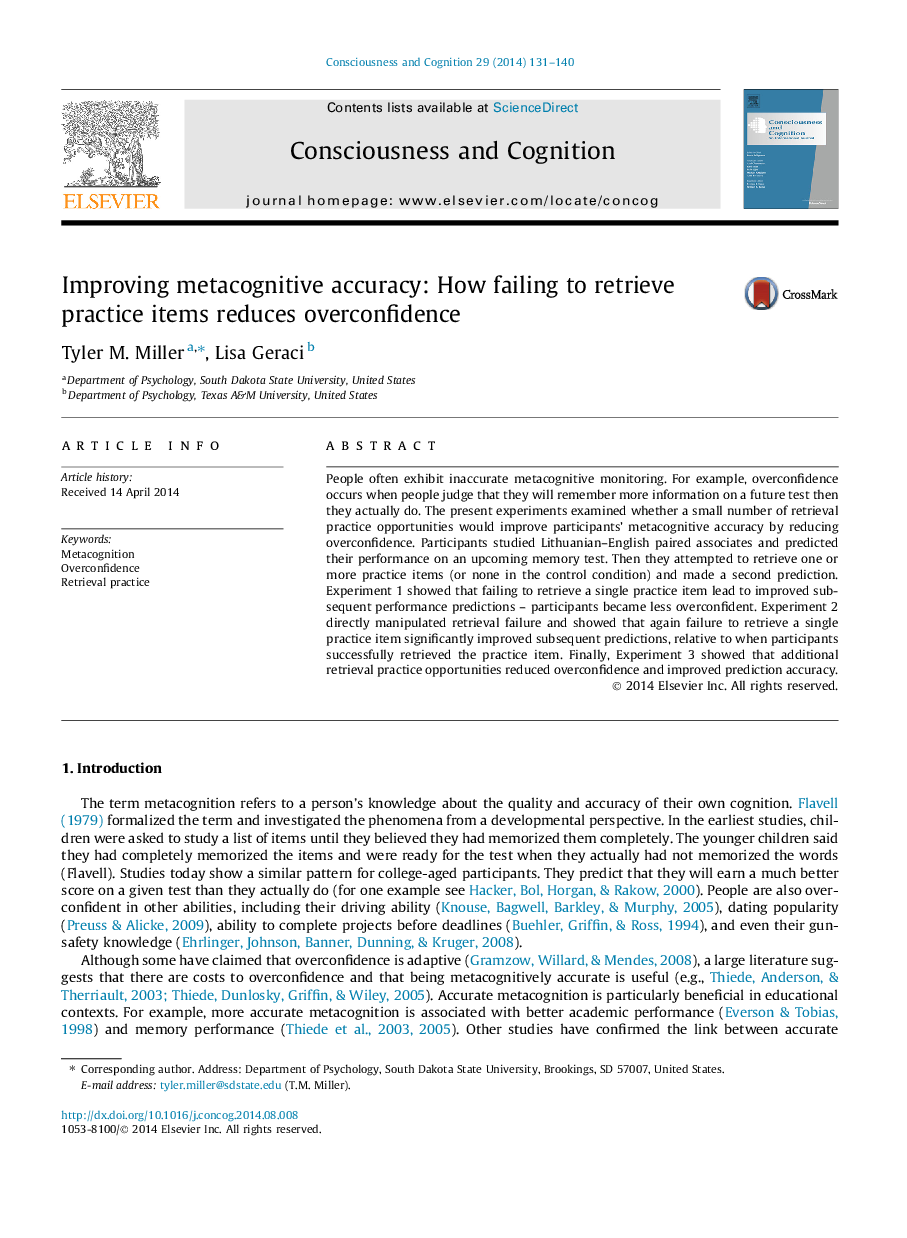| Article ID | Journal | Published Year | Pages | File Type |
|---|---|---|---|---|
| 7289816 | Consciousness and Cognition | 2014 | 10 Pages |
Abstract
People often exhibit inaccurate metacognitive monitoring. For example, overconfidence occurs when people judge that they will remember more information on a future test then they actually do. The present experiments examined whether a small number of retrieval practice opportunities would improve participants' metacognitive accuracy by reducing overconfidence. Participants studied Lithuanian-English paired associates and predicted their performance on an upcoming memory test. Then they attempted to retrieve one or more practice items (or none in the control condition) and made a second prediction. Experiment 1 showed that failing to retrieve a single practice item lead to improved subsequent performance predictions - participants became less overconfident. Experiment 2 directly manipulated retrieval failure and showed that again failure to retrieve a single practice item significantly improved subsequent predictions, relative to when participants successfully retrieved the practice item. Finally, Experiment 3 showed that additional retrieval practice opportunities reduced overconfidence and improved prediction accuracy.
Related Topics
Life Sciences
Neuroscience
Cognitive Neuroscience
Authors
Tyler M. Miller, Lisa Geraci,
